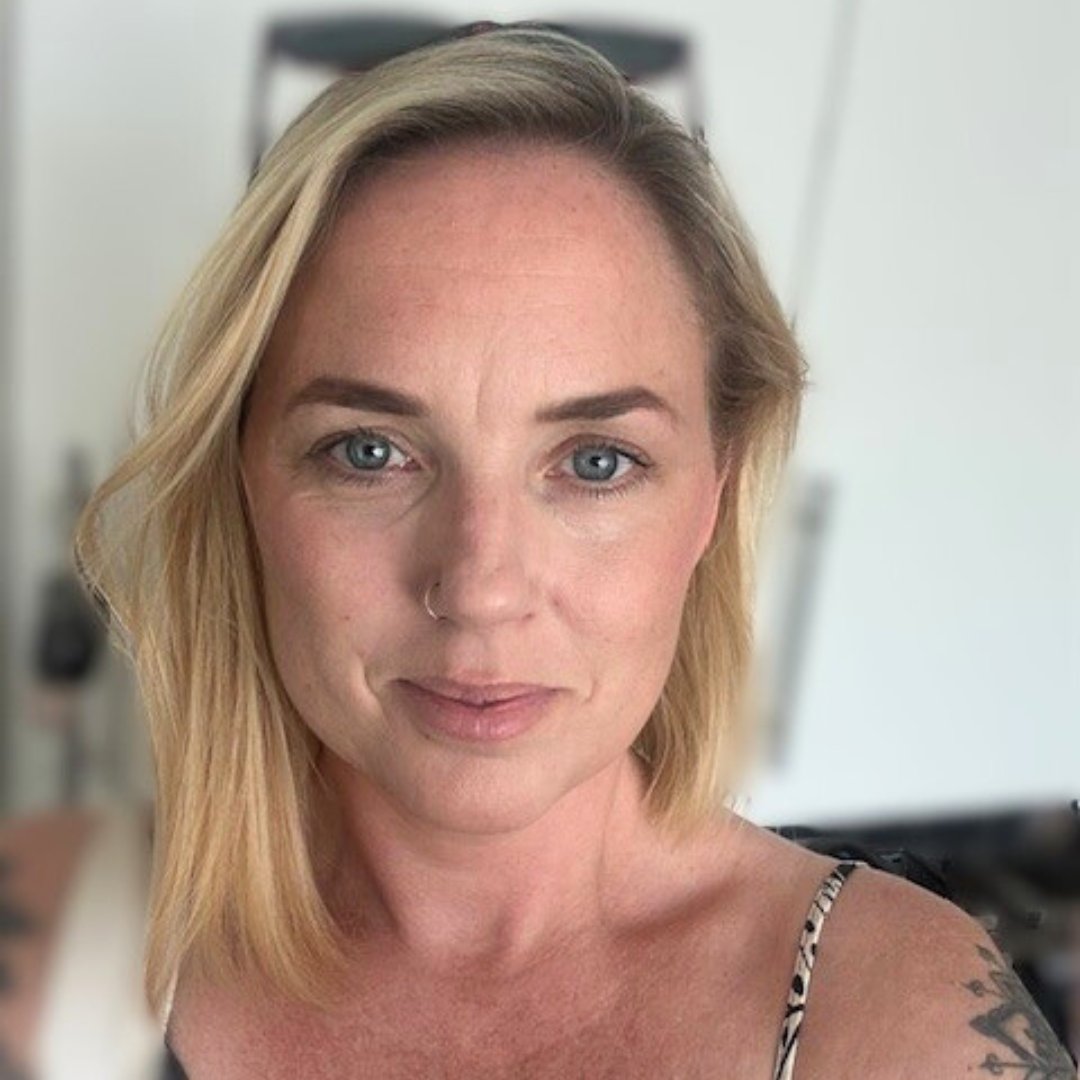According to research by workplace healthcare provider SimplyHealth, 25 per cent of menopausal women have considered leaving work because of their symptoms. One woman in that 25 per cent is Ali Booth – and she eventually resigned from her job.
Ali’s menopause symptoms started in her early 40s – well before the average age of 51 - “perimenopause is the stage that catches a lot of people out,” reflects Ali, and they began with migraines, brain fog and anxiety for the first time in her life. Home life as a single parent with teenagers exacerbated Ali’s symptoms. “In the past I’d always found the energy to keep going but my tolerance was low. It really affected me mentally,” says Ali.
She enjoyed her job, although it was pressurised, and describes herself at the time as a “high performer”. But she says she began to feel “past it and like ‘I shouldn’t be there anymore.’” She wasn’t eating properly, wasn’t taking care of her wellbeing and felt constantly and overwhelmingly tired – “my mood dropped like a stone,” says Ali.
Things came to a head when she fell ill at work. She went to the doctor and was misdiagnosed as having MS or a brain condition. After several consultant referrals, she was told that she was in perimenopause and was advised to change her stressful lifestyle, diet and exercise.
“Awkward conversations”
Ali approached her work, as she wanted to change her hours to get more rest time, but felt embarrassed doing so and was subject to many awkward conversations. “Nobody talked about women’s health. It was a very male dominated environment, with a culture of drinking, the worst thing you can do during menopause.” The response from work was along the lines of ‘now you know what’s up, you can just carry on’.
Career development opportunities passed her by, but when she challenged this, her manager said, “we thought it would be too much for you right now.”
Ali ended up resigning from her role as she no longer wanted to work for an organisation that had no awareness or understanding of what she was going through.
She has since set up a company that helps employers raise awareness of wellbeing, including menopause. Awareness is crucial, she says: “If it was spoken about more, I would have learned sooner that my experience related to the menopause. Employers that raise awareness and provide training and support can have a significant impact on women seeking interventions sooner; nobody should feel like they no longer belong when going through this normal stage of life.”

Missing the link between mental health and menopause is not uncommon. BHT mental health recovery worker, Olivia Kain, says that she was in perimenopause (the transition phase in which hormones begin to fluctuate, lasting up to eight years) at the age of 42, hadn’t considered taking hormone replacement therapy and was in pure coping mode. However, watching the Davina McCall documentary about menopause in 2021 made her realise that many of the symptoms she’d been experiencing for a number of years were linked to menopause and that perhaps she should seek help.
For example, Olivia noticed she was processing information slower, developing a short temper and had anxiety, joint pain and sleep disturbance. “Most mornings, I felt shattered. I lost confidence and thought ‘I’m not good enough.’”
But seeing the documentary – and joining up the dots about some of the issues she had faced – encouraged her to seek help from her GP and to investigate HRT.
A supportive employer
In stark contrast to Ali, Olivia got support from her employer. “Approaching my manager was odd, but they said, ‘how can we make things more manageable?’” Her manager – a man, younger than her – helped her to manage caseloads and offered time to talk.
Some of Olivia’s clients are menopausal, but haven’t all had a positive experience when seeking help. “If the GP sees a history of mental health, they dismiss menopause, saying ‘it’s your mental health’. Women aren’t being heard.”
Olivia recommends her clients use peer support like the Facebook group she used. She has run a drop-in menopause café at work and hopes to establish a menopause support group. But she also helps clients in more innovative ways.
“I look at naturally encouraging ‘happy hormones’ – endorphins, dopamine, serotonin and oxytocin – through exercise, hugs, affection, touch or time with animals. We see what they can bring into their routine.”

Jan Spiller, a BHT senior recovery worker, also didn’t realise struggles with her mental health were menopause-related. “I had terrible brain fog,” says Jan. “But because the menopause goes hand in hand with life, you think it’s because you’re stressed. When you’re in it, you get on with it.”
The pressure to carry on
When Jan couldn’t get to grips with a new system in her previous job, things bubbled over. “I used to go home and cry.” She soldiered on but ended up changing jobs. “I thought there was a stigma attached to it. My attitude was ‘keep calm and carry on.’ When you’re used to feeling confident, it’s hard to say, ‘I’m struggling.’ Had I been able to open up, I might have had a different experience.”
Now, Jan hopes that women can be more open, that reasonable adjustments can be made and that they understand there are options. What is needed above all, she says, is compassion both for oneself and from employers.
“If you’re driving in fog, you’d put your headlights on and slow down, you wouldn’t expect to keep going. If weather conditions change, your needs change.”

This sentiment is echoed by Debbie McConnell, parental mental health manager in the Families in Mind team at West Sussex Mind. She says that a lot of people are unaware of how their cycle and hormones affect their mental health. The first thing she asks women she supports who are experiencing menopause symptoms is: “how is your cycle; are there any patterns?’ I suggest they, ‘start taking notice’, I share my experiences. Personal stories are important to hear.”
Hormonal changes affect wellbeing
Debbie knows only too well how wellbeing is impacted by hormonal change from her experience of perimenopause, worsened by premenstrual dysphoric disorder (PMDD), a very severe form of premenstrual syndrome.
At 35, Debbie noticed changes in her cycle, including hot flushes, swollen joints, weight gain and “feeling stressed all the time”. Her symptoms included “heightened anxiety, panic, sadness and a kind of mania – it was a yo-yo. All the symptoms of menopause, apart from irregular periods. This just wasn’t normal for me and it affected my whole life. I was barely keeping it together. I was begging for it to end. At times I felt suicidal.”
Again, her GP told her she was too young for perimenopause and after three years, her anxiety was so bad, she quit her job. Real change came later, when she decided to give herself “a complete overhaul,” by researching and making changes to her diet and lifestyle.
“I finally said to myself, ‘I’m important’ - otherwise what kind of mother, daughter and friend am I going to be?”
Debbie is in a much better place now. “Although every cycle brings its challenges, I’m proud I’m able to do my job well and be a better parent. Talking about it has been really good. Hiding it makes it worse. You need to trust your instincts, listen to your body, be open to trying different things and understand there’s no magic pill.”

Towards menopause-positive workplaces
More broadly, awareness and work-based resources about the menopause in the workplace are improving and there is more guidance out there. Yet menopause, a natural stage of life for women, remains quite taboo, particularly at work. One in 10 say that lack of support at work during menopause was a factor in them leaving their job, but small adjustments can make a huge difference – for example, easy access to toilets, fans or regular breaks. Arming managers with the skills to have conversations with staff can be ground-breaking.
Supporting women during perimenopause and menopause could provide clear benefits for organisations too, saving recruitment costs when women leave, often taking many years of experience and skills with them. It could also reduce the loss of productivity caused by frequent absence.
It is also clear that women experiencing menopausal symptoms need the same understanding from their employer as employees going through any mental or physical illness. “We can’t choose it and we can’t choose how it affects us,” concludes Jan. “It’s not just a woman thing. It’s part of life and it affects everyone.”